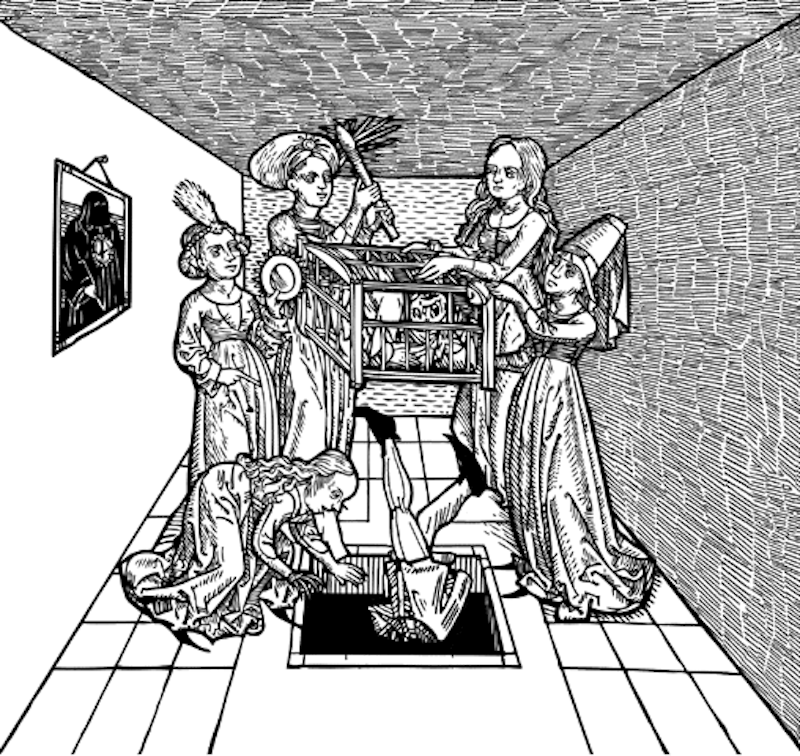If Necro Deathmort sounds like a parody of an extreme metal band name—well, yes, that’s exactly what it is. A.J. Cookson and Matthew Rozeik aren’t metalheads; they’re laptop jockeys in the UK dubstep scene, and their album, The Beat is Necrotronic, is a send-up. The album cover shows an ominous woodcut scene in which a child drops through a black pit door and a picture of Darth Vader hangs on the wall. The song titles range from the goofy “Spilth (Spilll Your Filth)” to the arch “I Fought the Law and the Law Won Because Fighting Is Against the Law.”
The thing is, extreme metal is not necessarily averse to a bit of tongue-in-skull posturing. Doom metal, in particular, has as many links to the wiseacres of punk and grunge as to the solemn Satanists of black and death. The Melvins would happily use a song title like “Origami Werewolf”; Harvey Milk might well include a sneering sample of a preacher burbling about adolescence and Christ just as Necro Deathmort does on “Broadcast.”
The only difference would be that the Melvins and Harvey Milk are a good bit funnier. Necro Deathmort has a few moments where their irony seems sincere—like on “Spilth,” where a dance beat gamely funks along before being dismembered, crushed and spat upon by an inrushing tide of heavy. For the most part, though, the distancing is pro forma. “I Fought the Law” is as enamored of the dark, dramatic grandeur of slow, unfolding doom as utterly unrepentant Eastern-philosophy whores like Om. “Technicolour Minstrel Show” may suggest some sort of sneering ragtime interpolation, but the actual track might as well be the ominous backdrop for a horror suspense film. It’s all swelling washes of demonic, echo-y static—a sludgy pulse of ambient filth hovering with pleasant painfulness between almost-melody and noise.
The Beat is Necrotronic is less a skewering of doom than a love letter to it. Dubstep is a polymorphously perverse genre at the moment, shifting with flirtatious profligacy from the agro reggae-on-steroids of the Bug, to the jazzy Eurolounge of Martyn, and on and on to just about anything and everything else. With so many options open, you can see how the stoned-out unity of doom would be appealing, both as just another option on the table and as a kind of slow-motion repudiation of them all. For the 12-plus minutes of “The Ultimate Testament,” Cookson and Rozeik aren’t idiosyncratic geniuses forging their own inimitable style in a fragmented media landscape—they’re metalheads, marching inexorably into the one true inferno. The law wins, but not because they’re fighting it. On the contrary, they give the rod a reverent kiss as it crushes them, right before they slip away, with the liquid grace of the evil Terminator, to their next unholy genre assignation.

